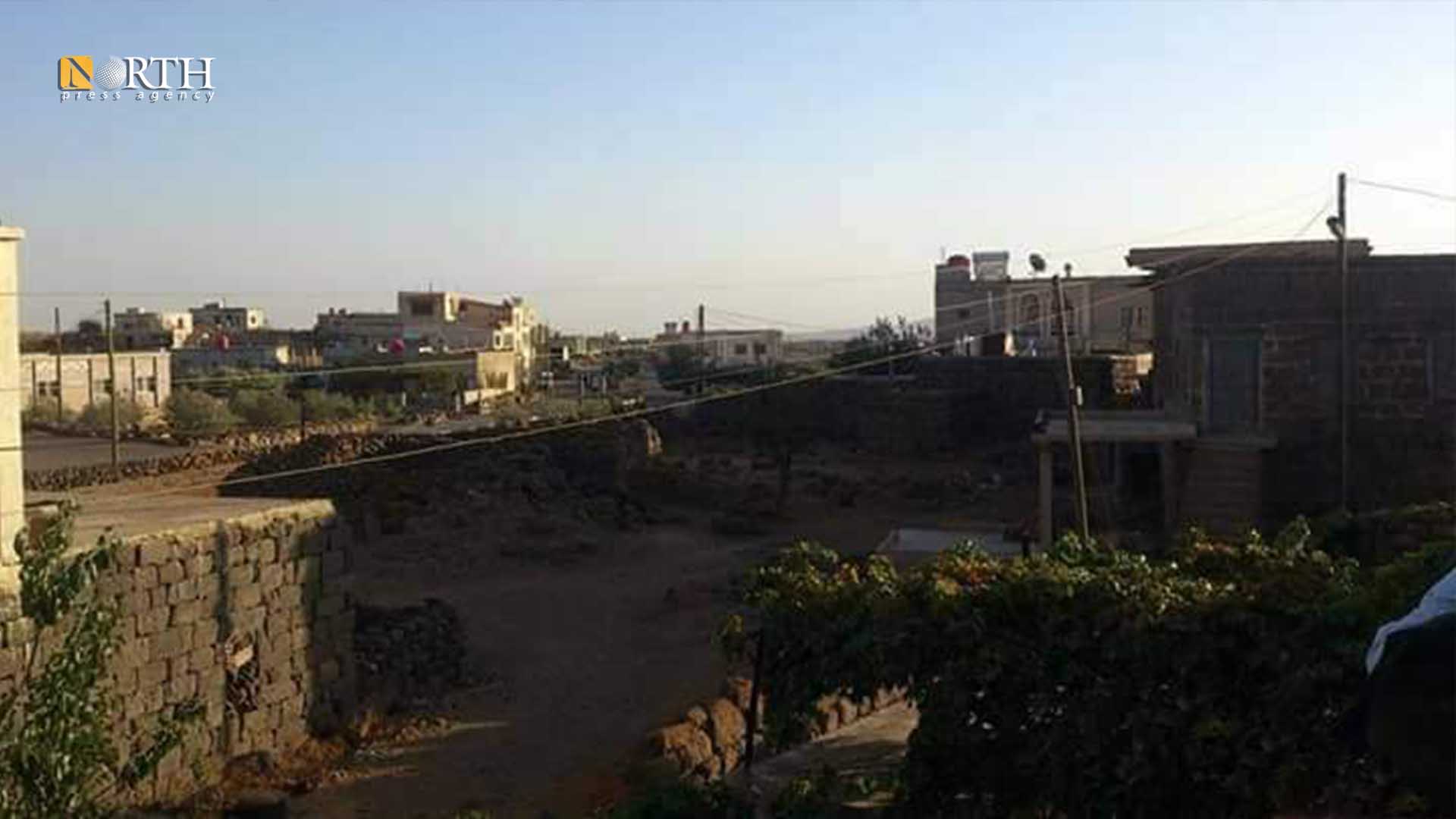SUWAYDA, Syria (North Press) – Hamid Tarabieh, a science teacher and a farmer at the same time, from the eastern countryside of Suwayda, southern Syria, found his moving to the city as an urgent need for him and his family, after he was overburdened by the high transportation costs between his town and his school in the city of Suwayda.
Three years ago, Tarabieh moved to the city, before that, he going and coming between his town and his school which was in the city, “I used to pay half of my salary as transportation fees.”
Currently, he is moonlighting as a Taxi driver in addition to his work at the school to secure his family needs.
The countryside of Suwayda is witnessing an emigration towards the city, which the residents attributed to the lack of necessities of life in the villages.
This year, large farms planted with wheat and barley in most areas of Suwayda went out of production due to the lack of rainfall.
After a survey conducted by the Directorate of Agriculture in Suwayda, which covered the entire countryside last month, it was found that more than 70% of the wheat fields and 80% of the barley fields are not capable of being harvested.
Reasons
But Sa’id Abu Omar, an expert of human and economic development in Suwayda, said that the drying up of crops is only a small part of the reasons of migration.
Abu Omar attributed the main reasons to the nature and form of government policies followed and the general economic orientation, “as reducing agricultural subsidies and raising the price of oil derivatives forced large numbers of rural residents to leave agricultural work and migrate towards the outskirts of cities.”
The high population in most areas of the countryside, the concentration of government institutions in general in the city, the focus of the government’s attention on cities and its quest to secure the city’s requirements before the countryside, are other factors that Abu Omar finds, to cause emigration to the city.
According to farmers in Syria, the high cost of fuel and its unavailability at the subsidized government price deprived them from the opportunity to water their crops during the spring, which affected the productivity of the irrigated areas.
The population of Suwayda exceeds 520,000 people, according to the personal and civil status statistics.
Mohsen Khalidi (a pseudonym), an expert from the Center for Local Development and Governmental Regional Planning in Suwayda, said that the population distribution in Suwayda is 62% in the city and 38% in the countryside, with an increase in migration to the city of 14% over last year.
He added that the government officials’ theory “and under several names such as rural recovery and development, rural women and other government initiatives can only be described as random addresses for the administration.”
The government did not launch a plan to revive the countryside, especially the remote areas, which lie along the administrative borders of the whole Suwayda, which has become almost empty of its inhabitants, by creating sustainable rural development centers.
Solutions
The solution, according to Khalidi, lies in transferring part of the business from the city to the countryside in a miniature form, such as medical services, educational and cultural centers, and working to encourage investment in the fields of agriculture, animal production and handicrafts.
Work must also be done to divide the countryside into rural development units that have independence in decision-making without referring to the center while providing them with financial support according to the nature of their environment and their needs, which is one of the most important reasons for the advancement of the countryside in Suwayda.
Siwar Hammoud’s migration from his hometown in the far northwest of Suwayda to the city two years ago, was beyond his control, as he left his land that no longer produces crops of wheat and barley.
Hammoud is currently working in one of the commercial centers in the city and sends monthly sums of money to his five brothers in the town to meet their needs.
Hammoud, who has not get married yet, pointed out that his emigration from his remote town was not limited to him, but that dozens of young men joined him in emigrating to the city, which made the town almost empty of its youth, except for the elderly.

